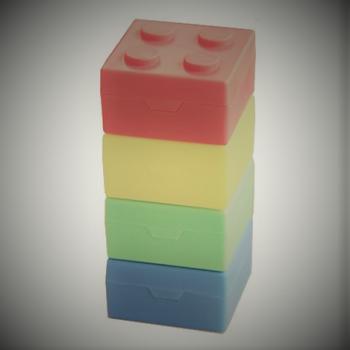Ask Professor Puzzler
Do you have a question you would like to ask Professor Puzzler? Click here to ask your question!

Good morning, and welcome back to school, for those of you who are students! I know that for many of you, school began back in mid-August, but I always think of the day after Labor Day as "Back-to-School" Day - that's just a holdover from my childhood days!
Now that school is back in session, we're starting to get some interesting questions again, so be sure to check back from time to time to see what's new!
A question came to us yesterday from seventh grader Jenny in the Philippines. She wants advice on solving the sort of problem where people are working together. Here's an example of this sort of problem:
Jack and Jill can build a LEGO tower in four hours. If Jack, working by himself, can do the job in five hours, how long would it take Jill to do the job by herself?
First of all, I should point out that this sort of problem always has a built-in assumption that never gets talked about. It's the assumption that the childrens' combined speed of work is equivalent to their individual speeds added together. Depending on the job and the people, this is not necessarily a reasonable assumption. For instance, Jack and Jill could end up getting in each others' way, and therefore slow down the process. Maybe they don't get along well, and fight over how to build the tower. Or maybe they get along quite well, and spend more time talking than building! Often the job in a problem like this will be something like "mowing a lawn," since on a job like that they can work independently and separately, without slowing each other down.
Okay, so we make the assumption that their combined speed is the sum of their individual speeds. In other words, if Jack can build 10 towers per hour, and Jill can build 12 towers per hour, then together they should be able to build 22 towers per hour.
Notice what the units of speed are in this problem: towers per hour. This is a fractional unit, with the number of towers on top, and the number of hours on the bottom.
So we'll say A = Jack's speed, B = Jill's speed, and C = their combined speed
A + B = C
How fast can Jack build a tower by himself? 1 tower every five hours. So A = (1 tower)/(5 hours) = 0.2 towers/hour
How fast can they build a tower together? 1 tower every four hours. So C = (1 tower)/(4 hours) = 0.25 towers/hour
Thus,
0.2 + B = 0.25
B = 0.05 towers/hour
If she builds at a rate of 0.05 t/hr, and we want to know how long it takes to build one tower, our unknown is H, the number of hours:
1 tower = (0.05 t/hr)(H hr)
Divide both sides by 0.05 to obtain: H = 1/0.05 = 20 hours. If Jill works by herself, it'll take her 20 hours to do the job. Does this make sense? Sure! If Jack works by himself it takes him five hours. If Jill helps, it takes four hours, which isn't that much different from Jack's rate, which suggests that Jill works pretty slowly!
So that's the general process, and you can apply that to a wide variety of 'working together' problems. You can even do this with more than two people working together. Thanks for asking, Jenny!

